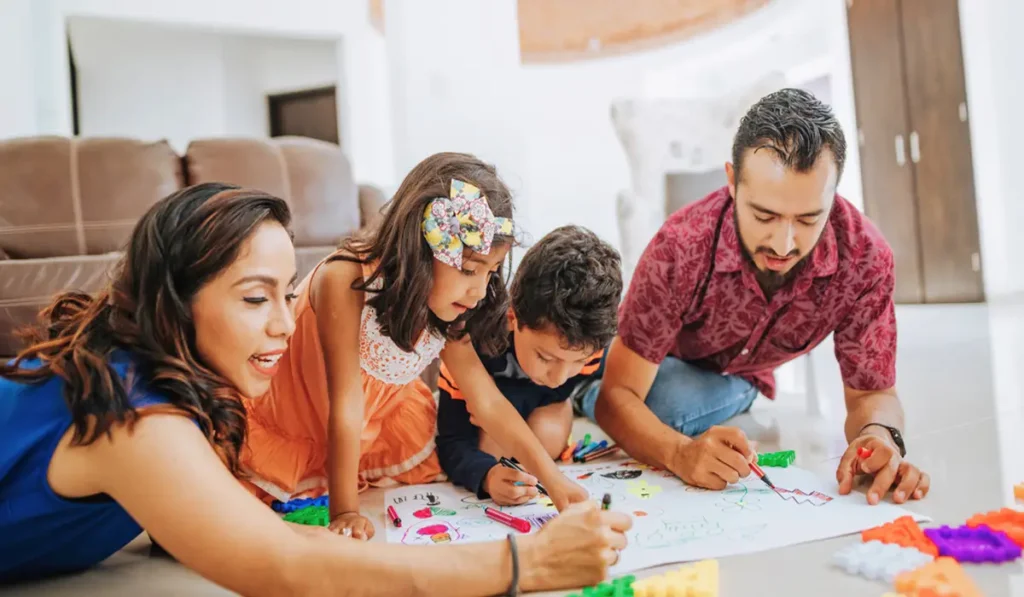Effective Strategies for Autism Social Skills Training

Autism social skills training
Autism Spectrum Disorder (ASD) is a developmental condition that affects how a person thinks, interacts, and experiences the world. It is characterized by a range of symptoms, which can include difficulties in communication, repetitive behaviors, and challenges in social situations. Social skills are crucial for building relationships, understanding social cues, and participating in community life. For individuals with autism, mastering these skills can lead to improved interactions and greater independence. Social skills training is an essential tool that helps individuals with autism navigate social situations more effectively, fostering better communication and connections with peers. This training focuses on teaching specific skills through structured activities, making it easier for those with autism to engage with others. Understanding the importance of social skills can lead to more meaningful relationships and a more fulfilling life for individuals on the spectrum.
Understanding Social Skills
Social skills encompass a wide range of abilities that allow people to interact and communicate effectively with others. These skills include verbal and non-verbal communication, active listening, sharing, taking turns, and recognizing social cues such as body language and facial expressions. For individuals with autism, social skills might not develop as naturally as they do for their peers, which can create barriers in social interactions. Essential social skills can be broken down into different categories, including initiating conversations, maintaining discussions, and understanding the perspectives of others. By learning and practicing these skills, individuals with autism can better navigate social environments, whether at school, work, or in their communities. Developing these skills not only helps improve their confidence but also promotes inclusion and acceptance in social settings.
Challenges Faced by Individuals with Autism
Individuals with autism often encounter various challenges in social situations. One of the most common difficulties is understanding social cues, such as tone of voice or body language. These subtle signals can be confusing, leading to misunderstandings in conversations. Additionally, individuals with autism may struggle with initiating and maintaining conversations, which can result in feelings of isolation or frustration. Many find it challenging to engage in small talk or participate in group activities, which are often vital in social contexts. These challenges can significantly affect their relationships with peers and family members. Social anxiety is also prevalent among individuals with autism, making it even harder to engage in social interactions. Understanding these challenges is crucial for developing effective training programs that address specific needs and help individuals gain confidence in their social skills.
The Role of Social Skills Training
Social skills training plays a vital role in supporting individuals with autism. This structured approach helps them learn and practice essential skills in a safe and supportive environment. The primary goal of social skills training is to enhance the individual’s ability to communicate effectively and interact positively with others. Benefits of this training include improved relationships, increased self-esteem, and greater independence. Through targeted exercises and activities, participants can learn how to read social cues, understand the dynamics of conversations, and respond appropriately. Training can take various forms, including one-on-one sessions, group activities, and role-playing scenarios. This diversity allows for a tailored approach that meets individual needs, making the learning process more engaging and effective. Ultimately, social skills training empowers individuals with autism to feel more confident in social situations, paving the way for better communication and relationships.
Effective Techniques for Social Skills Training
Several effective techniques can be employed in Autism social skills training to support individuals with autism. One popular method is role-playing, where participants act out specific social scenarios. This approach allows them to practice responses and develop an understanding of social interactions in a controlled setting. Another technique involves using visual aids and social stories, which provide clear examples of appropriate social behavior and responses. These tools can help individuals grasp complex social situations more easily. Group activities are also beneficial, as they encourage peer interactions and collaborative learning. In these settings, participants can practice their skills in real-time, receiving immediate feedback from their peers and instructors. Combining these techniques creates a well-rounded training program that addresses various aspects of social skills, making it easier for individuals with autism to engage with others and build meaningful connections.
Creating a Supportive Environment
Creating a supportive environment is crucial for effective social skills training. A safe and encouraging atmosphere allows individuals with autism to practice their skills without fear of judgment. This environment should foster open communication and promote understanding among peers. Family involvement is also essential; when families engage in the training process, they reinforce the skills learned outside of the training sessions. Encouragement from loved ones can boost confidence and motivate individuals to apply what they’ve learned in real-life situations. Additionally, involving peers in the training can create a sense of community, making social interactions feel less intimidating. Structured activities should be designed to ensure that everyone feels included and valued, regardless of their skill level. A supportive environment not only enhances learning but also helps individuals with autism feel more accepted and integrated into their social circles.
Resources for Parents and Educators
There are numerous resources available for parents and educators looking to support individuals with autism in developing social skills. Various programs and organizations offer specialized training tailored to different age groups and skill levels. For example, local schools may provide social skills classes or workshops specifically designed for students with autism. Online resources, including videos and articles, can also offer valuable information and strategies for parents and educators. Books focused on autism and social skills can provide insights into effective teaching methods and activities. Additionally, connecting with local support groups can be beneficial, as they offer opportunities for networking and sharing experiences. By utilizing these resources, parents and educators can create a comprehensive support system that fosters social skills development and promotes inclusion for individuals with autism.
Measuring Progress in Social Skills Development
Measuring progress in social skills development is essential for understanding the effectiveness of training programs. Setting achievable goals is the first step in this process. These goals should be specific, measurable, and tailored to the individual’s needs. For example, a goal might be to initiate a conversation with a peer at least once a week. Regularly monitoring improvement is also vital; this can be done through observations, feedback from peers, and self-assessments. Keeping track of successes and areas for improvement helps in adjusting training methods and ensuring continued progress. Additionally, celebrating small victories along the way can boost motivation and confidence. Over time, measuring progress not only highlights growth but also reinforces the importance of social skills training in enhancing communication and relationships for individuals with autism.
Conclusion
In conclusion, social skills training is a vital resource for individuals with autism, helping them develop essential communication and interaction skills. Understanding the unique challenges faced by these individuals allows for the creation of effective training programs tailored to their needs. By employing various techniques and fostering a supportive environment, trainers, parents, and educators can significantly enhance social skills development. Utilizing available resources and regularly measuring progress ensures that individuals continue to grow and thrive in social situations. With the right support and training, individuals with autism can achieve greater confidence, build meaningful relationships, and lead more fulfilling lives.








